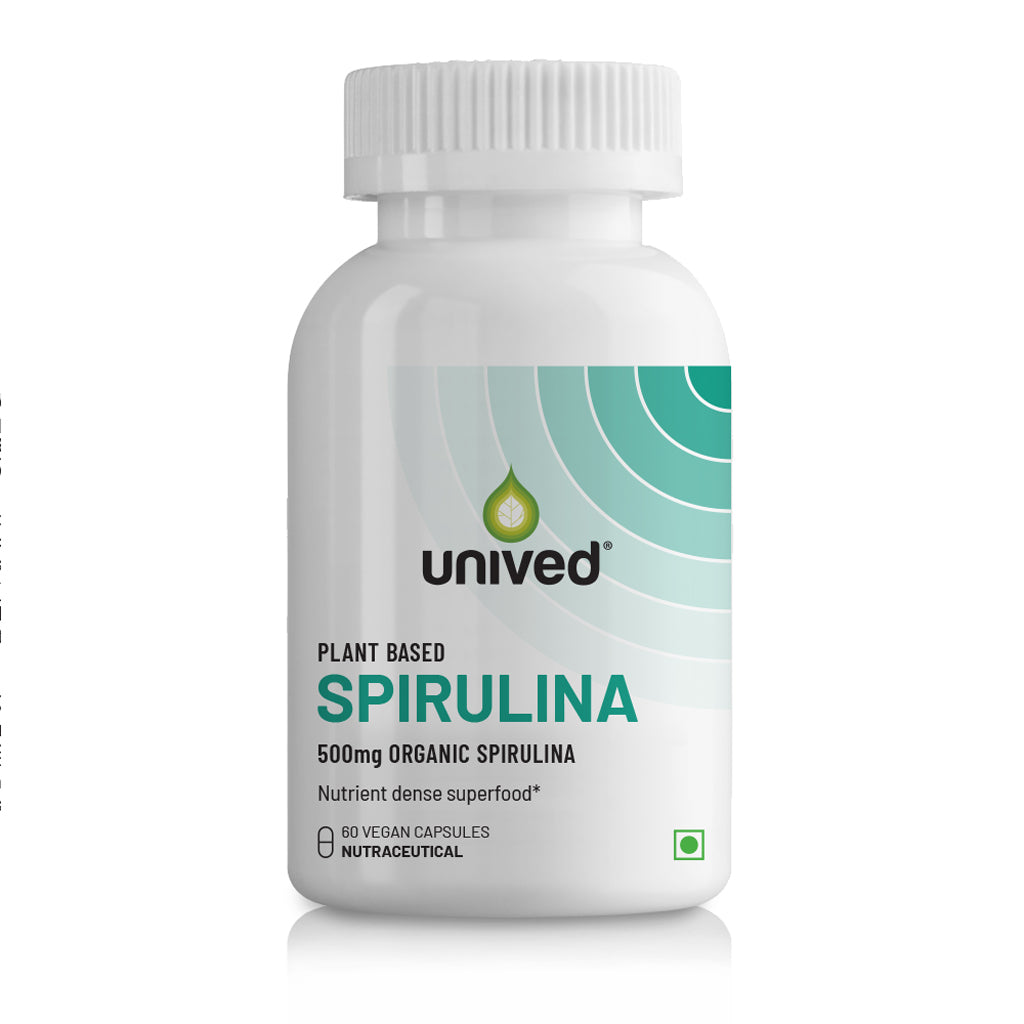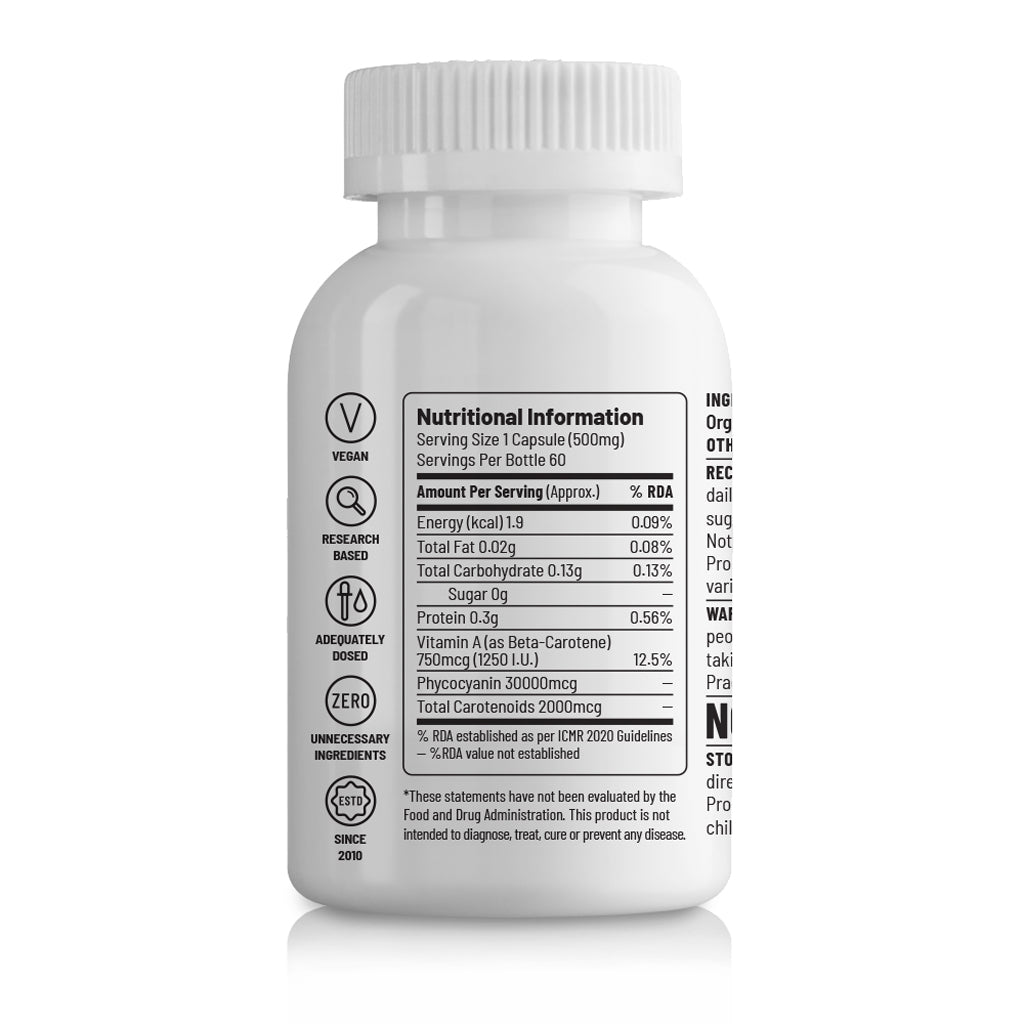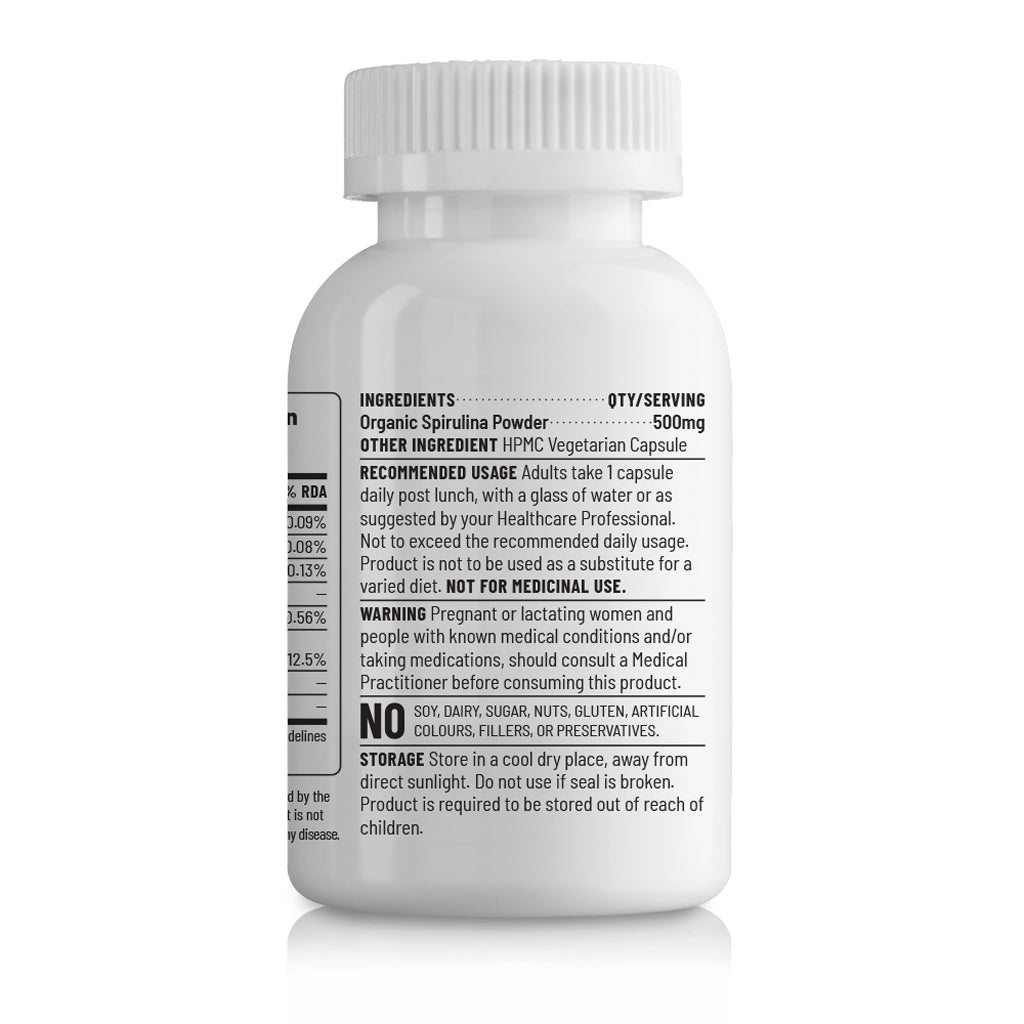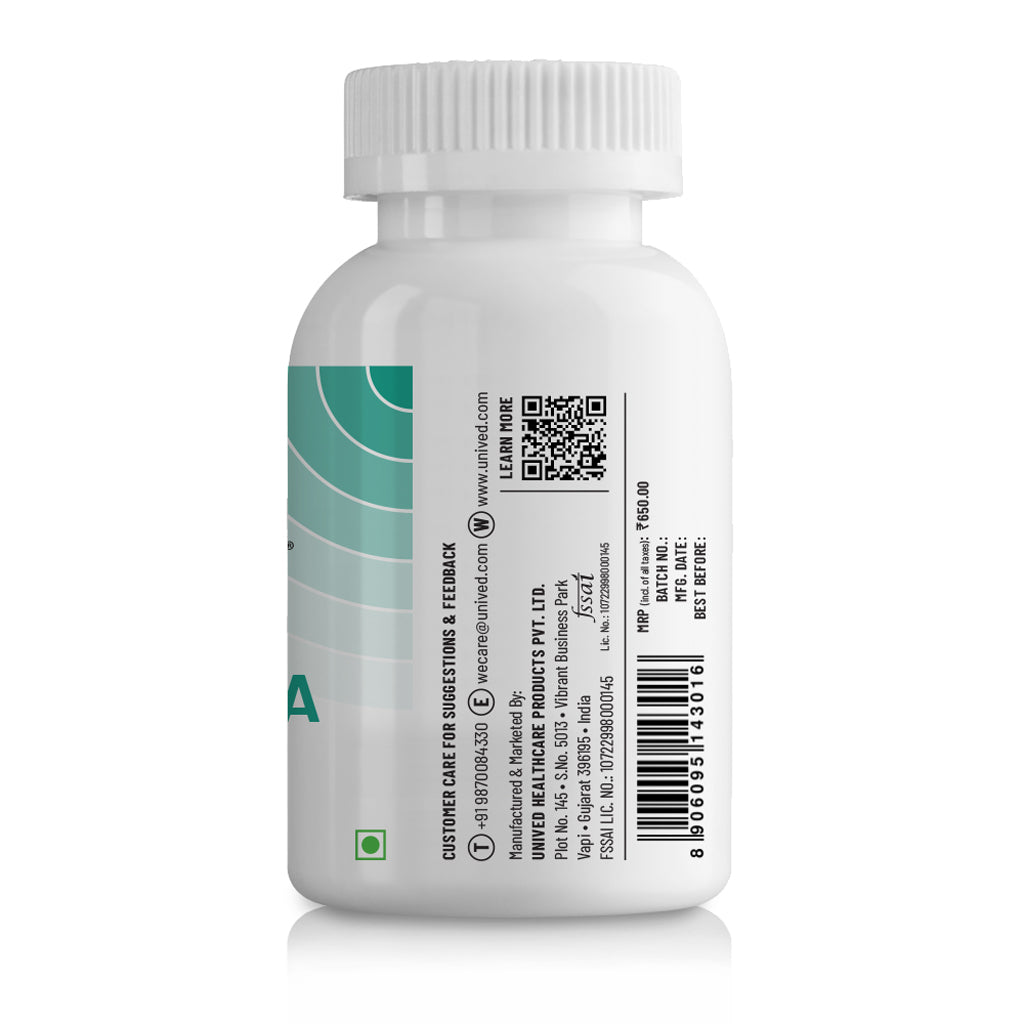Superfoods
Organic Spirulina
Organic Spirulina
Couldn't load pickup availability
Key Benefits
- Helps strengthen daily immunity and metabolism.
- Helps reduce stress levels, boost stamina, reduce fatigue, and aids in daily detox.
- Vegan superfood is high in protein and nutrients.
Batch Details
Serving Size & Servings Per Container
Suggested Use

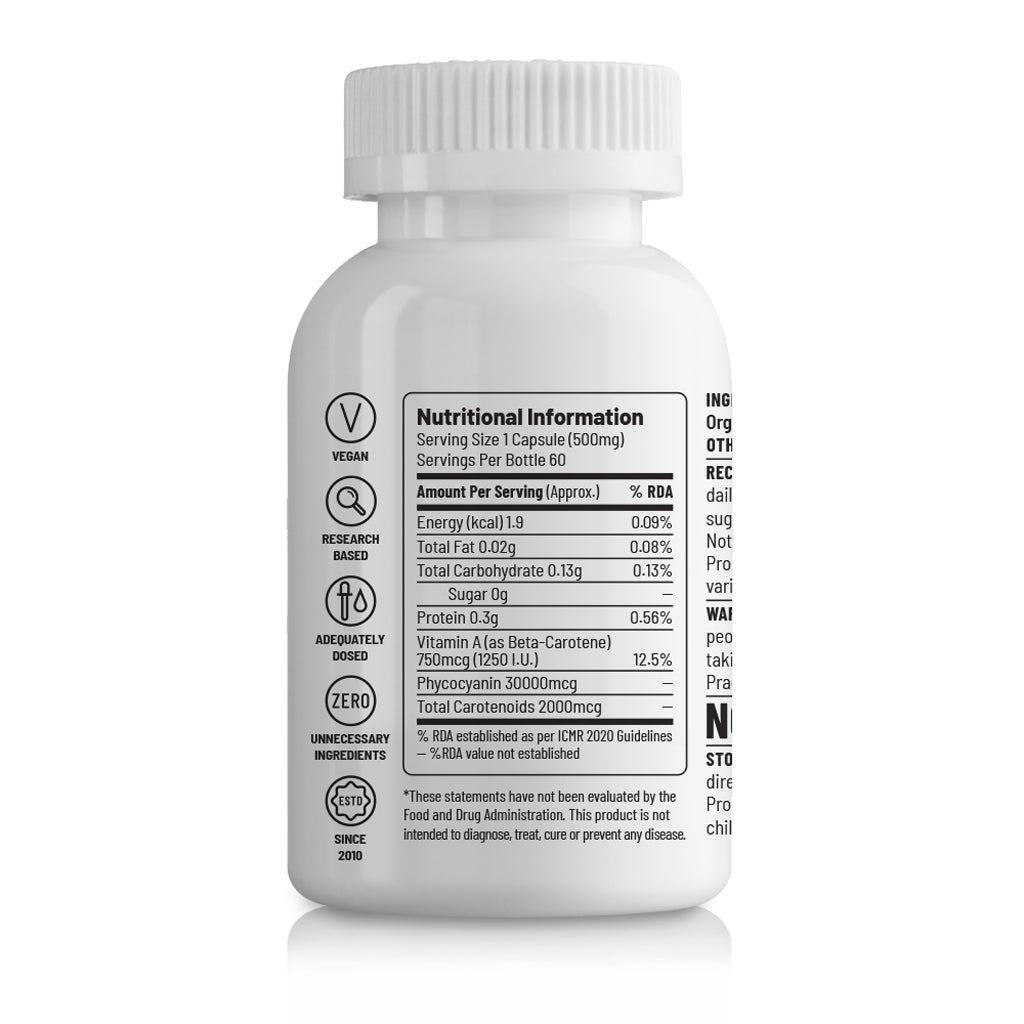
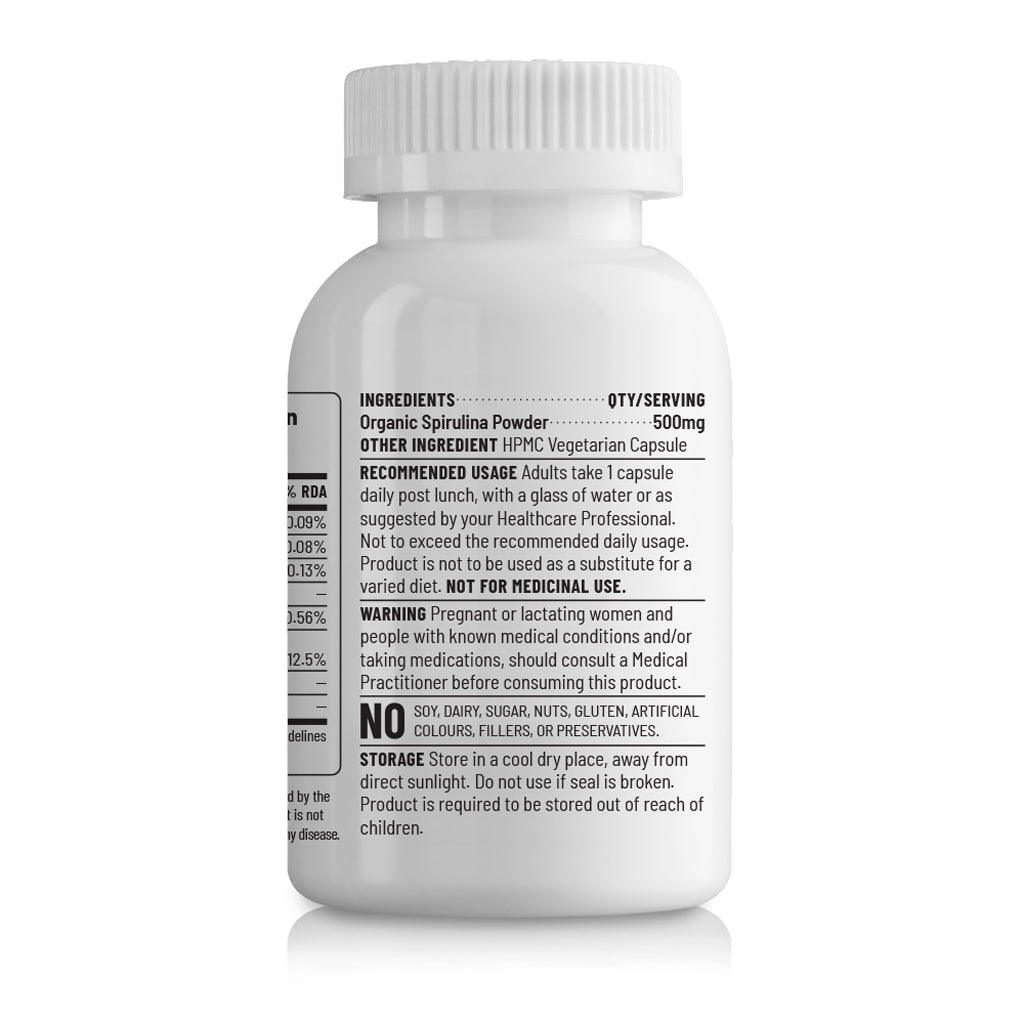
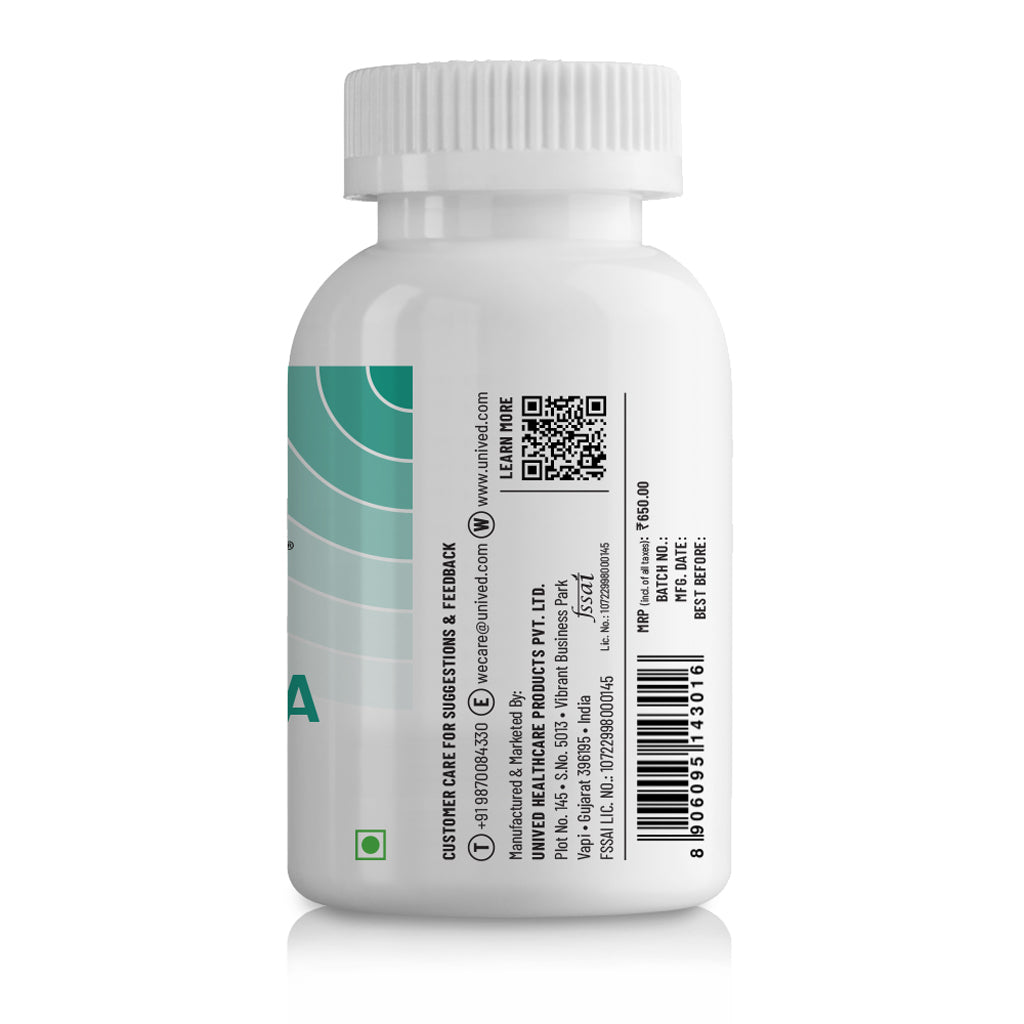
- Learn More
- Ingredients
- FAQ
Spirulina is a photosynthetic filamentous microalga that has
emerged as a potent food supplement because of its rich micro- and
macronutrient contents. It is popularly known as a superfood due to the great
diversity, abundance & concentration of nutrients it contains. It is a
valuable source of proteins, vitamins, minerals, β-carotene, fatty acids, etc.
because of which it is touted as the most nutritious, concentrated whole food
source found in nature [1,2,3]. Spirulina has been used as a food source for centuries
has a long history of use. Literatures
indicate that Spirulina was used traditionally by Mexicans during Aztec
civilization for over 1000 years. It was also used as a food by the natives in
the Lake Chad in Africa [9]. In fact, Spirulina has served as the sole source
of nutrition in some African communities in times of famine, during which
entire native populations have existed eating only Spirulina for over a month
at a time [1,2,3].
Spirulina has highly digestible protein and it contains all
essential amino acids. The protein content of Spirulina is exceptionally high
(about 50 to 70% its dry weight) compared to other vegetable source proteins.
Spirulina contains more beta-carotene than any other whole food, it is abundant
in other phytonutrients, such as phycocyanin, superoxide dismutase,
chlorophyll, superoxide dismutase, and gamma-linolenic acid etc., [1, 3]. It is
shown that three grams of Spirulina displays high antioxidant and anti-inflammatory
activity than five more fruits and vegetables. In phytonutrients, spirulina is
60 times better than spinach, 31 times better than blueberries, and 700 times
more potent than apples. It has numerous neutralizing and oxidative effects on
free radicals and heavy metals [4].
Some of the health Benefits of Spirulina are known to:
- Helps athletes with long lasting energy and vitality.
- Nourishes people with digestion, assimilation &
elimination. - Stimulates immune system to destroy invading disease
organisms. - Enhance the immune system with its antiviral, anti-tumor and
interferon inducing effects. - Promotes tissue repair in wounds and burns and also has the
anti-infectious properties. - Decreases cholesterol levels and helps to lower the risk of
cardiovascular disease. - Functions as an anti-inflammatory agent.
- Govern the appetite and helps to stimulate the metabolism
[10].
Our Formulation
In light of Spirulina’s nutritional goodness, Unived brings
you the Organic Spirulina that is rich in protein, phycocyanin, beta-carotene,
chlorophyll and is free of contaminants and heavy metals.
Mode of Action:
Immunity
Spirulina can be used simply as a protein supplement but it
is also considered to have specific effects on the immune system. Spirulina
helps in building immunity and improving resistance to viral infections.
Spirulina can enhance components of the mucosal and systemic immune system as
it activates the cells of innate immune system. Several pre-clinical animal
studies have shown good immune stimulatory effects in a variety of species.
Preliminary studies in healthy humans suggest that spirulina increases the
production of cytokines, tumour necrosis factor, interleukin (IL)-2, and
interferon, and causes CD4+ T helper cell proliferation. It also appears to
increase the activity and cytotoxicity of natural killer cells [5].
Anti-toxic effects
Several animal studies have investigated the potential of
spirulina to have a protective effect against toxicity related to various
cytotoxic agents such as cardiotoxicity, nephrotoxicity & hepatotoxicity.
[5]
Anti-allergic actions
Spirulina supplementation is also linked to protection
against allergic reactions, as it can help stop the release of histamines,
which cause allergy symptoms. One study found people with allergic rhinitis who
consumed 2 grams of spirulina a day experienced significant improvement in
symptoms like nasal discharge, sneezing, nasal congestion, and itching [6].
Anemia
Spirulina possibly enhances red cell production and
function. Over a 12-week study period, there was a steady increase in average
values of mean corpuscular haemoglobin with spirulina intake [5].
Liver and Cardiovascaular protection
Spirulina has hepatoprotective properties by decreasing
liver lipid profile and lipoperoxidation products. Spirulina has a hypolipemic
effect, especially on the concentrations of triacylglycerols and the
cholesterol associated to low density lipoprotein and indirectly on total
cholesterol and cholesterol associated to high density lipoprotein values [5].
Anti-inflammation and Anti-oxidant
Spirulina have shown anti-inflammatory activity through
phycocyanin presence. Phycocyanin suppresses the synthesis of pro-inflammatory
cytokines, interferon-γ (IFN-γ), and TNF- α. In addition, the C-phycocyanin
enhances the levels of anti-inflammatory cytokines. [7, 11]. Phycocyanin is a
free radical scavenger, it shows significant enhancement of serum SOD activity
higher than that of vitamin E and has significant hepatoprotective effects [11,
8].
References:
1. Capelli, Bob, and Gerald R. Cysewski. "Potential
health benefits of spirulina microalgae* A review of the existing
literature." Nutrafoods 9.2 (2010): 19-26.
2. Mathur, M. "Bioactive Molecules of Spirulina: a Food
Supplement, Bioactive Molecules in Food." Springer, DOI 10 (2019): 978-3.
3. Falquet, Jacques, and J. P. Hurni. "The nutritional
aspects of Spirulina." Antenna Foundation (1997). Salmeán, Gabriela
Gutiérrez, Luis Humberto Fabila Castillo, and German Chamorro-Cevallos.
"Nutritional and toxicological aspects of Spirulina (Arthrospira)."
Nutrición hospitalaria: Organo oficial de la Sociedad española de nutrición
parenteral y enteral 32.1 (2015): 34-40.
4. Anvar, A. A., and B. Nowruzi. "Bioactive properties
of spirulina: A review." Microb. Bioact 4 (2021): 134-142.
5. Mohan, Arpita, et al. "Spirulina, the nature’s
wonder: A review." Lipids 5 (2014): 7-10.
6. Cingi, Cemal, et al. "The effects of spirulina on
allergic rhinitis." European Archives of Oto-Rhino-Laryngology 265 (2008):
1219-1223.
7. Mishra, Tulika, et al. "Spirulina: The Beneficial
Algae." Int. J App. Micro. Sci 2.3 (2013): 21-35.
8. Kulshreshtha, Archana, et al. "Spirulina in health
care management." Current pharmaceutical biotechnology 9.5 (2008):
400-405.
9. Belay, Amha, et al. "Current knowledge on potential
health benefits of Spirulina." Journal of applied Phycology 5 (1993):
235-241.
10. Soni, Ruma Arora, K. Sudhakar, and R. S. Rana.
"Spirulina–From growth to nutritional product: A review." Trends in
food science & technology 69 (2017): 157-171.
11. Bortolini, Débora Gonçalves, et al. "Functional
properties of bioactive compounds from Spirulina spp.: Current status and
future trends." Food Chemistry: Molecular Sciences (2022): 100134.
12.
https://www.spiralyne.co.uk/what-is-spirulina/history-of-spirulina/
- Organic Spirulina Powder – 500mg
What is the suggested use of Unived Organic Spirulina?
Take one or two capsules daily post-meal.
Is Unived Organic Spirulina safe?
Yes. It is pure and free of contaminants.
Who should consume Unived Organic Spirulina?
If you are looking for wholesome nutrition rich in protein and phytonutrients in a single capsule, the Unived Organic Spirulina is an ideal choice as it supports immunity, energy production, metabolism, boosts stamina, and has antioxidant and anti-inflammatory benefits, and many more.
Recommended
This is my second bottle of the spirulina supplement and I will going for the 3rd bottle after this gets over. This combined with the vegan calcium I feel like it’s improved my overall health and energy.

